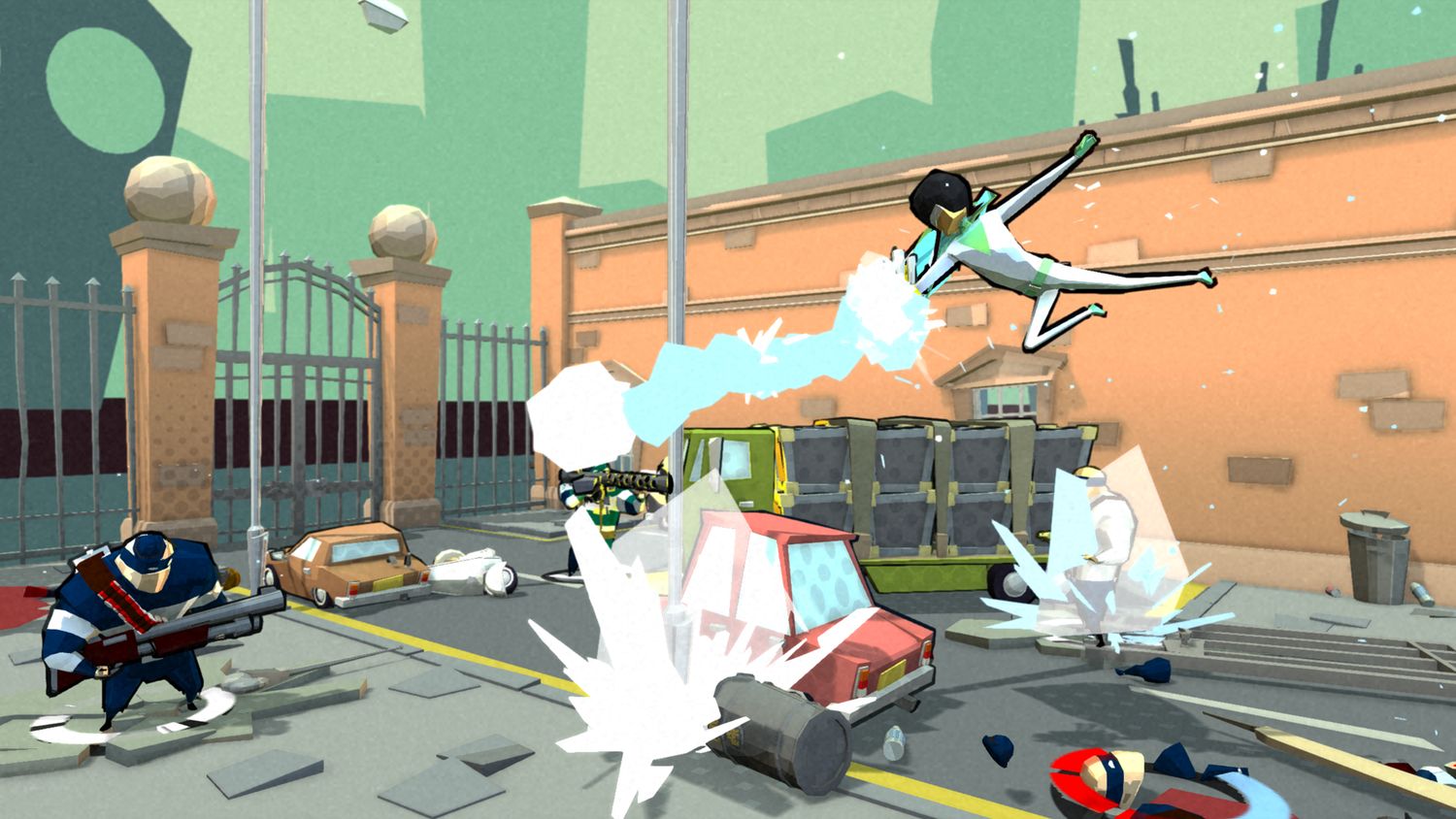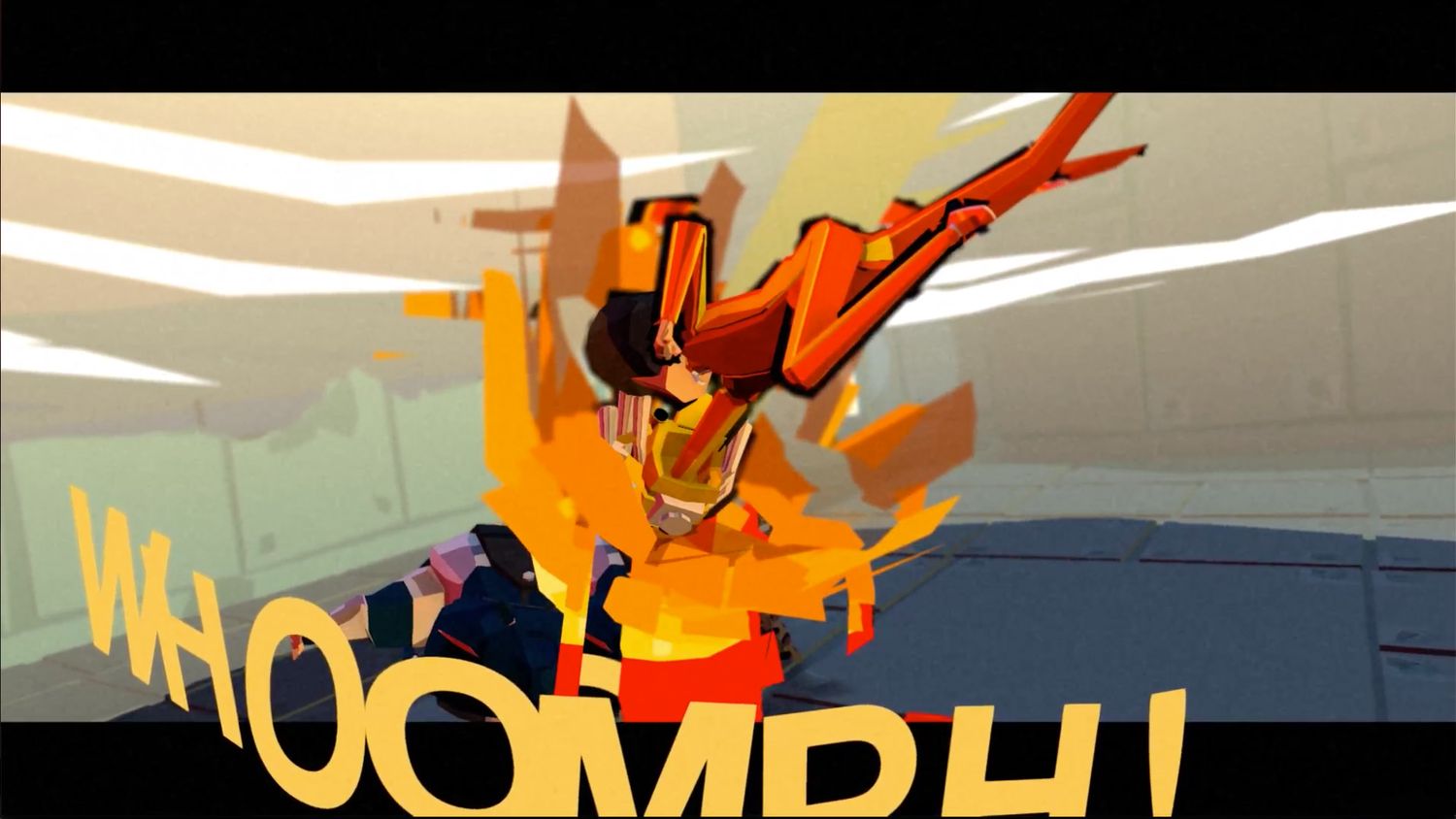Join a team of B-list superfolks in Deadbeat Heroes
It's a "movement-based" 3D brawler set in 1970.

The best superhero stories are often about the most incompetent characters. The Tick, Mystery Men, the Inferior Five, even Spider-Man is appealing because he's a screw-up. Videogames occasionally deal with similar characters—like the Superhero League of Hoboken—but not often enough for my liking.
That's why Deadbeat Heroes sounds promising. A project from indie team Upstream Arcade, it's a "movement-based" 3D brawler set in 1970s London. A new brand of gun-toting criminals has emerged and the heroes of prior decades are unable to deal with them, forcing Captain Justice to recruit a new team that includes an accountant named Felix Movewright and a singer called Betty Ritz, give them 'rocket gloves' that let them steal superpowers from their enemies, and set them loose on some very bad dudes.
Designers Imkan Hayati and Adam Langridge (both ex-Lionhead veterans) explain their inspirations, and where Adam West fits in.
PC Gamer: Do you remember the moment you had the idea for Deadbeat Heroes?
Imkan Hayati: Me and Adam were sitting in a coffee shop chatting over a nice cappuccino and americano respectively. We were talking about comics and then started thinking about a game where the hero had no powers, but who could steal other peoples'. Straight away, the image of this unlikely looking hero popped into my head—an unassuming chap, but with a ridiculous rocket glove, who would later become Felix. The idea of this character who was fragile but fast and adaptable got our imaginations going and soon we were designing the game that would become Deadbeat Heroes!
How long have you been working on it?
IH: It’s been me in my living room and Adam from his garage and a couple of our old Lionhead friends working part-time. This means the game has taken two years. Although it's been a lot of hard work, we've thoroughly enjoyed making Deadbeat Heroes and we think everyone will enjoy playing it.
Keep up to date with the most important stories and the best deals, as picked by the PC Gamer team.
What are the biggest changes to have happened during development?
Adam Langridge: We initially had plans to have a simulation element to the gameplay, where you would manage your heroes' careers, choose the next job and try and balance elements like fame, money and heroism—classic Bullfrog/Lionhead design elements. Very early on, we grew concerned that we'd end up making a beat-em-up with simulation elements, which doesn't sound like lots of fun for the bit of me that enjoys beat-em-ups, or a simulation game with beat-em-up elements which doesn't sound like lots of fun for my inner sim fan. We decided to really focus on the core of the gameplay which is smashing stuff up.
What's the tone? Is it more golden age or silver age?
AL: It's firmly silver age. The classical, golden age heroes are now older, out of their depth and disappearing. It's a desperate time for our war era hero—Captain Justice and he turns to desperate measures, enlisting people without powers.

What comics or TV shows inspired Deadbeat Heroes?
IH: Our greatest inspiration has to have been the '60s Batman TV Series. The humor, the vibrant colors, the wacky villains all influenced the direction of the style, even Captain Justice was a homage to the late Adam West. Other influences were the old Spider-Man comics with their halftone printing, a feature that we embraced in the art style, and finally the concept art from Pixar's The Incredibles with their straight lines and sharp angles.
You've called it "movement-based", what does that mean exactly?
AL: It's a fighter where the mechanics are all about maneuvering yourself and your enemies. Your rocket glove allows you to move fast and hit hard—you're a glass hammer. You're able to fluidly chain together dashes, jumps, and wall-runs to get under, over and around danger. You need to—there's no block button so if you want to not get hurt, you have to not get hit.
You can attack from any direction, on the ground, in the air, from walls, you name it. This lets you juggle enemies around the level, and even bounce them off of walls or into each other to keep the combo going. Once you learn how to hurt enemies ricocheting around the level, you'll begin to position yourself to follow up with more attacks, chaining more and more hits.
Lots of beat-em-up mechanics are reflected through this movement-based theme. Enemies drop pickups that power up your turbo bar, but you need to get to them. Equally, bystanders stand there trembling, waiting to be saved. Do you break off the combo to get that pickup or save that bystander before they are hurt?
How does the ability to steal powers work, and what kind of powers are there to take?
AL: Not only do you fight big, burly goons. You'll also come across spandex-wearing supervillains. These guys are immune to normal attacks, but by using a Turbo Punch, earnt from those pickups I mentioned earlier, you can do a little damage, but more importantly dislodge some of their power for you to steal. When you're powered up, the tables turn and you're able to wreak even more havoc.
The powers range from projectiles like fireballs and freezing blasts to defensive abilities like invisibility or a reflective shield that amplifies damage, all the way to over the top abilities like teleportation, crazy good for combos, and super strength which hurls scenery into your long-suffering opponents. When I said you were a glass hammer, when you pick up a superpower, you're a big glass hammer.
How will the multiplayer work? Is it co-op?
AL: It sure is. We're big fans of couch co-op and the friendly competition that it naturally allows. When you play with a friend, you'll both be working together, but you're graded individually and there are only so many enemies to defeat and bystanders to save—who's going to be the coolest hero? This lets people play super nice, but also in competition.
Deadbeat Heroes will be available on Steam from October 10. Check back soon to read our review.

Jody's first computer was a Commodore 64, so he remembers having to use a code wheel to play Pool of Radiance. A former music journalist who interviewed everyone from Giorgio Moroder to Trent Reznor, Jody also co-hosted Australia's first radio show about videogames, Zed Games. He's written for Rock Paper Shotgun, The Big Issue, GamesRadar, Zam, Glixel, Five Out of Ten Magazine, and Playboy.com, whose cheques with the bunny logo made for fun conversations at the bank. Jody's first article for PC Gamer was about the audio of Alien Isolation, published in 2015, and since then he's written about why Silent Hill belongs on PC, why Recettear: An Item Shop's Tale is the best fantasy shopkeeper tycoon game, and how weird Lost Ark can get. Jody edited PC Gamer Indie from 2017 to 2018, and he eventually lived up to his promise to play every Warhammer videogame.

